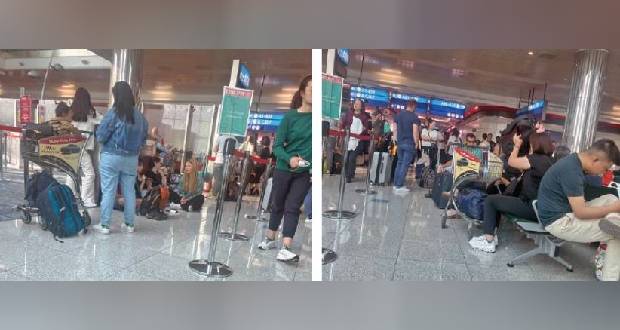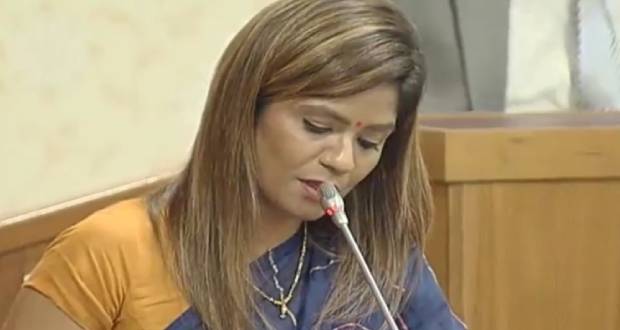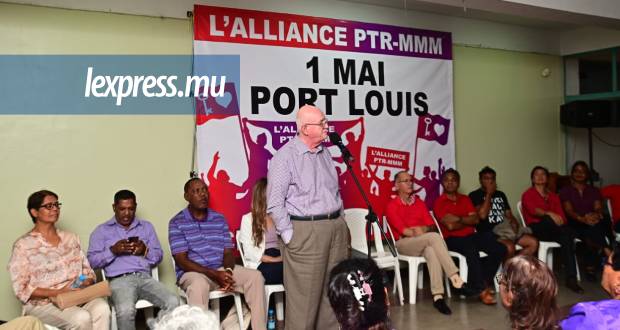Publicité
A proposal that transcends communal Best Loser System
Par
Partager cet article
A proposal that transcends communal Best Loser System

Now that people are Þ nally facing the fact that the Blok 104 legal case was not a challenge to the Best Loser System (BLS) and its communalism, but only a narrow attempt to make election officials accept Nomination Papers without one of the four communities inscribed on them, it is high time to work out, understand and debate genuine proposals for electoral reform, proposals that respond specically to the need to do away with the communalism in the Best Loser System.
The MMM and MSM, the two opposition parties in the National Assembly, both said they are against doing away with the Best Loser System, so there goes an easy ¾ majority to change the Constitution. However, the MMM speci es clearly, once again, that it agrees with Blok 104 and Balancy judgment 100% about not being obliged to Þll in a community on the Nomination Papers.
Navin Ramgoolam in his New Year address said he, too, agrees with the Blok 104 demand. He assures all communities of fair representation, curiously not specifying how, unless he means he agrees with the MMM. So, it looks like the worst case scenario, that is to say that they all agree to keep the communal BLS by legislating for what is in reality the Blok 104 demand i.e. a virtual fth community.
Balancy''''s judgment we know from experience left the BLS to go ahead, business as usual. We see no progress in
this. Instead this will both stabilize the communal BLS and risk provoking demands for other newcommunities.
What we need is to do away with the communal best loser system. This is our campaign since 1983. And it will be done by means of electoral reform as a result of political struggle not by the Courts, and more particularly not by the Courts of the colonizing power. The electoral reform necessary will clearly need to include enough exibility to, inter alia, obviate the problems the BLS was originally designed to obviate. For it to come true, we need to gather political momentum behind clearly understood proposals. That is how political progress gets made. This is how the world works.
In particular, we need a proposal that allows the major electoral parties to overcome the effects of various communalist for vote-splitting that sometimes take place and, though the numbers involved are usually small, these plots can and do affect the outcome of close elections or in marginal constituencies under the present system. Neither Sachs, nor Collendavelloo, touch on this at all. They keep the BLS in place.
Carcassonne attempts to address the BLS by means of the anti-democratic blocked list of 4-7 candidates, a system which could very well produce perverse, communal election results of the worst kind, as any Mauritian could tell him. And he presumably then proposes another anti-democratic measure 8 nominated Ministers from outside the elected MPs as a rather desperate measure to counter-act this possibility! But in doing so, he hurls us back to the Governor''s way of correcting for communal voting: patronizing the people.
This is just not good enough for a Republic. So, what we need is political struggle by the people, in favour of a good proposal. We need to convince enough people that what we are proposing will work, and to get enough support so as to force the PTr, MMM and MSM to change their positions.
This is not only possible. It is the way change happens. In LALIT, we have recently won a battle we joined 35 years ago: Creole is in schools. All the main parties had opposed this for decades, but finally, after years of LALIT campaigning, using Creole, developing its written form, convincing people, winning people over, helping popularize the ndings in the LPT Hearing on the Harm Done by Suppressing the Mother Tongues in Schools, and with other people beginning to support LALIT ''s position, finally the parties in Parliament changed from their reactionary position to a more enlightened one. Similarly, LALIT has nally, after 35 years struggle, together with others, forced the Mauritian State to act against the UK on Diego Garcia. In neither of these two cases would we cry ÒVictory!Ó but we can sure say that victory is now possible in both, because the parties in power have been forced off their old frozen positions. That is the effect of political struggle: to force the powerful to change, even when they do not want to.
In the past, LALIT campaigned single-handed and won the restoration of universal pensions, and campaigned single-handed and won village elections back. Again these last two are not victories, but mere defensive battles won. But, our point is that these issues have been won through political struggle.
And not through the sudden benevolence of the powers-thatbe nor by anything supernatural. In order to get the PTr, MMM and MSM to change their positions, we have to convince enough people on the basis of very clear argumentation that we all understand, and to mobilize properly.
So, we need political struggle around very clear proposals, where it is also clear how the proposals actually address the real problem at hand. How do we do away with institutionalized communalism, in times when there is not a massive popular mobilization to do away with it? How do we assure that we resolve the problems the best loser system was designed, however misguidedly, to alleviate? The answer is only by really thinking our proposals through, and then putting them to the test.
Here is what LALIT proposes. First, enlarge the National Assembly to 104 members, thus giving space for parties to assure they have a wide spread of candidates for the new system, with up to 4 candidates for each of the 20 constituencies, 3 for Rodrigues and one for a new constituency for Chagos. That makes 84. Electors go and vote as usual on the Þ rst ballot but, instead of for three, for four candidates of their choice, and then also cast a second vote on a new simple ballot-paper where they vote for the party of their choice.
Then after Counting the rst ballots, each party having prior to the election submitted its own list of Best Losers from amongst its 80-84 candidates in order of preference on partydecided criteria, to the Electoral Commissioner, the second ballots are counted, and then, just as in the past happened with Best losers but now on purely party lines, 20 Non-Communal Best losers are named, but in proportion to votes the parties got on the second ballot.
Women''s representation, as we have seen with the new Local Government Act, is easy to legislate for, if necessary. The democratization involved is as follows: Neither the population, nor all MPs, nor any candidates at all, will any longer need to be classifed by the State.
Political parties can prepare their lists of best losers in an order that helps to balance all the factors that elections may unbalance: gender, class, rural-urban skewing, and, in particular, community.
The non-communal best loser system is the result of a clear, conscious party ballot.
All those elected and named will have stood candidate in a Constituency, and will be answerable to electors directly.
Chagos will have a constituency.
Women will be assured election.
Party leaders are not given a disproportionate new power.
There are more representatives per elector.
This is just one of the LALIT proposals, the one designed to do away with the need for the communal Best Loser System. For details on our Electoral Reform proposal as a whole, please consult our 200-page book on
the subject, published in 2005, and see articles on www.lalitmauritius.org
Publicité
Les plus récents






